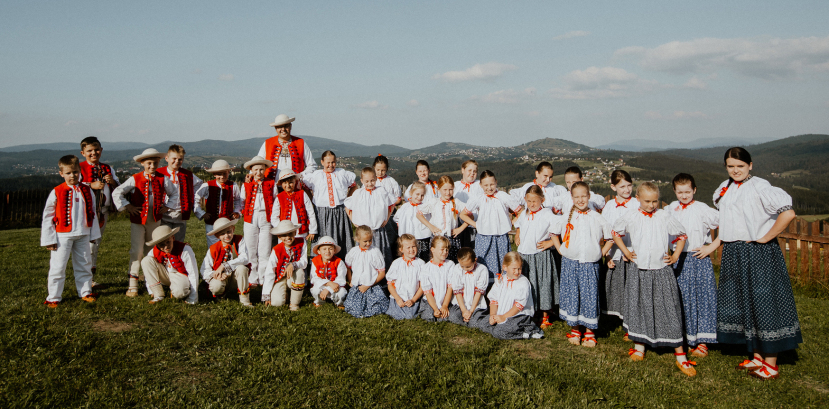On the slopes of the Silesian Beskids, within the historical borders of Cieszyn Silesia, lie three picturesque villages called Beskidian Trivillage: Istebna, Jaworzynka and Koniaków, the folklore of which is represented by MAŁA ISTEBNA Folk Ensemble - a participant in this year's edition of the Festival. Thanks to their excellent climatic and scenic qualities, as well as the rich and lively folk culture, touristically, these areas belong to the most attractive mountain regions in Poland. The contemporary image of the culture of this land was greatly impacted by the traditions of the Wallachians - nomadic tribes that came wandering in these areas from the eastern part of Romania. It was from them that some elements of clothing, faith and social culture were adopted. Besikidian Trivillage is renowned for cultivation of traditional handicrafts - sculpture, embroidery, woodcarving, but the greatest fame was brought to the region by crocheted lace, manufactured mainly in Koniaków. MAŁA ISTEBNA was established in September 2016, and operates in affiliation with the Centre for Extracurricular Activities in Koniaków. The ensemble members are primary school pupils from Istebna, Jaworzynka, Koniaków and Wisła, aged 6-12. Thus, the children are offered an opportunity to become acquainted with and cultivate customs, as well as music and dance traditions typical of the ethnographic group of Silesian Highlanders. The ensemble’s repertoire is mainly based on songs and dances representative of Beskidian Trivillage, which is situated at the Polish-Czech-Slovakian border. The region-specific instruments that usually comprise musical bands include the gaida, trembita, ocarina, pipe, violin and double bass. At the Festival of the Children of Mountains the ensemble will present a programme entitled “Games and dances in an open space.” The games presented will include “ulijanka”, “lisek”, “hóśtaćka”, counting rhymes, as well as children’s dances typical of the region of Silesian Beskids: “wróna”, “łowciorz”, “koło młyńskie”, “debołek”, “kwiotki” and “kapusta”. Maria Motyka and Józef Łupieżowiec are the ensemble instructors.
MAŁA ISTEBNA
Edition 2020/2021

